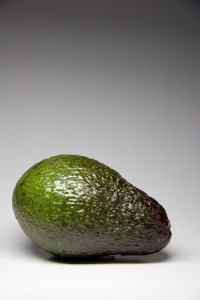
More evidence that low-calorie sweeteners are bad for your health
Studies show that artificial sweeteners can raise the risk of hypertension, metabolic syndrome, type 2 diabetes and heart disease, including stroke.

Natural Health News — New research from Mexico suggests that avocado oil could help fight free radical damage, a contributing factor to heart disease, cancer and premature skin ageing.
These unstable ”free radicals” wreak havoc in the body, triggering chain reactions that destroy cell membranes, proteins and even DNA.
In Mediterranean countries, olive oil consumption, which has natural antioxidant properties, has long been associated with extremely low levels of chronic disease such as stroke, diabetes and heart disease.
“In some Mediterranean countries, low or almost no appearance of these kinds of diseases has been associated with the high olive oil consumption,” lead researcher Christopher Cortes-Rojo said.
It is avocado oil’s similarity to olive oil that first led the researchers at the University Michoacana de San Nicolas de Hidalgo in Morelia, Mexico to find out whether avocado oil, which has similar propertied to olive oil, could eventually become “the olive oil of the Americas.”
Protection deep within the cell
The research team used yeast cells – the same ones used in wine and beer production – to examine avocado oil’s properties. They exposed the cells to high concentrations of iron, which is known to produce substantial free-radical reactions, “even to higher levels to those found in some human diseases.”
The results showed that avocado oil was protective against damage to cellular mitochondria, the deep heart of our cells, where energy is produced and cellular regeneration takes place. The antioxidants in fruits and vegetables, while also known to be protective says Cortes-Rojo, cannot penetrate the cell in the same way as fatty acids and therefore don’t provide this essential mitochondrial protection.
Extrapolating from their findings Cortes-Rojo said, “Our results are promising because they indicate that avocado consumption could improve the health status of diabetic and other patients through an additional mechanism to the improvement of blood lipids (fats).”
He emphasised that this is not the first evidence of the healthful properties of the avocado, pointing to other research demonstrating that avocado lowers the blood concentration of cholesterol and certain fats that are increased in diabetic patients and that may lead to stroke or heart attack.
Cortes-Rojo and his team presented their findings recently at the annual meeting of the American Society for Biochemistry and Molecular Biology in San Diego, California.
A unique oil
Avocado oil is of of the few oils not pressed from oil-rich seeds but from the flesh of the fruit of the avocado tree, Persea gratissima or Persea americana.
The oil which is similar in composition to olive oil is high in antioxidants as well as being rich in vitamins A, B1, B2 pantothenic acid, vitamin D, E, protein, lecithin and fatty acids, which have healing and regenerating qualities. But, in addition, avocados also contain some plant pigments that inhibit oxidation.
While it is true that about 85% of an avocado’s calories come from fat, the fats of this fruit are unique and include phytosterols , plant hormones such as beta-sitosterol, campesterol, and stigmasterol a that help keep inflammation under control. Avocados also contain polyhydroxylated fatty alcohols (PFAs). PFAs are widely present in ocean plants but fairly unique among land plants. PFAs are also anti-inflammatory.
In addition, avocados contain a very high amount of oleic acid, the fatty acid which is also present in olive oil. Over half of the total fat in avocado is provided in the form of oleic acid which helps our digestive tract form transport molecules for fat that can increase our absorption of fat-soluble nutrients like carotenoids.
Adding the fruit or the oil to a salad has been show to significantly increase the absorption of two key carotenoid antioxidants – lycopene and beta-carotene. One cup of fresh avocado (150 grams) added to a salad of romaine lettuce, spinach and carrots increased absorption of carotenoids from this salad between 200-400%.
The oil is also a highly moisturising component of some natural cosmetics.

Please subscribe me to your newsletter mailing list. I have read the
privacy statement